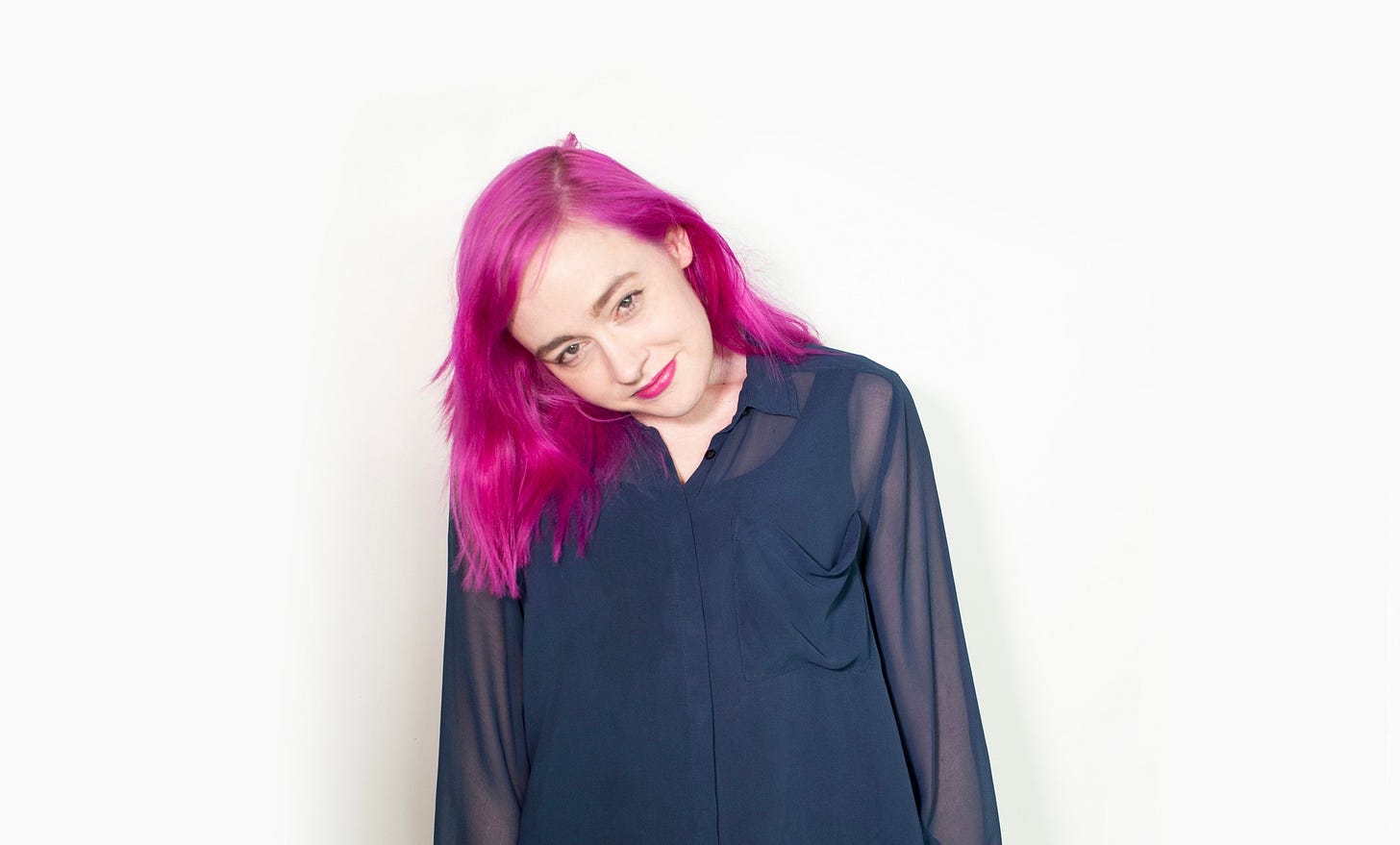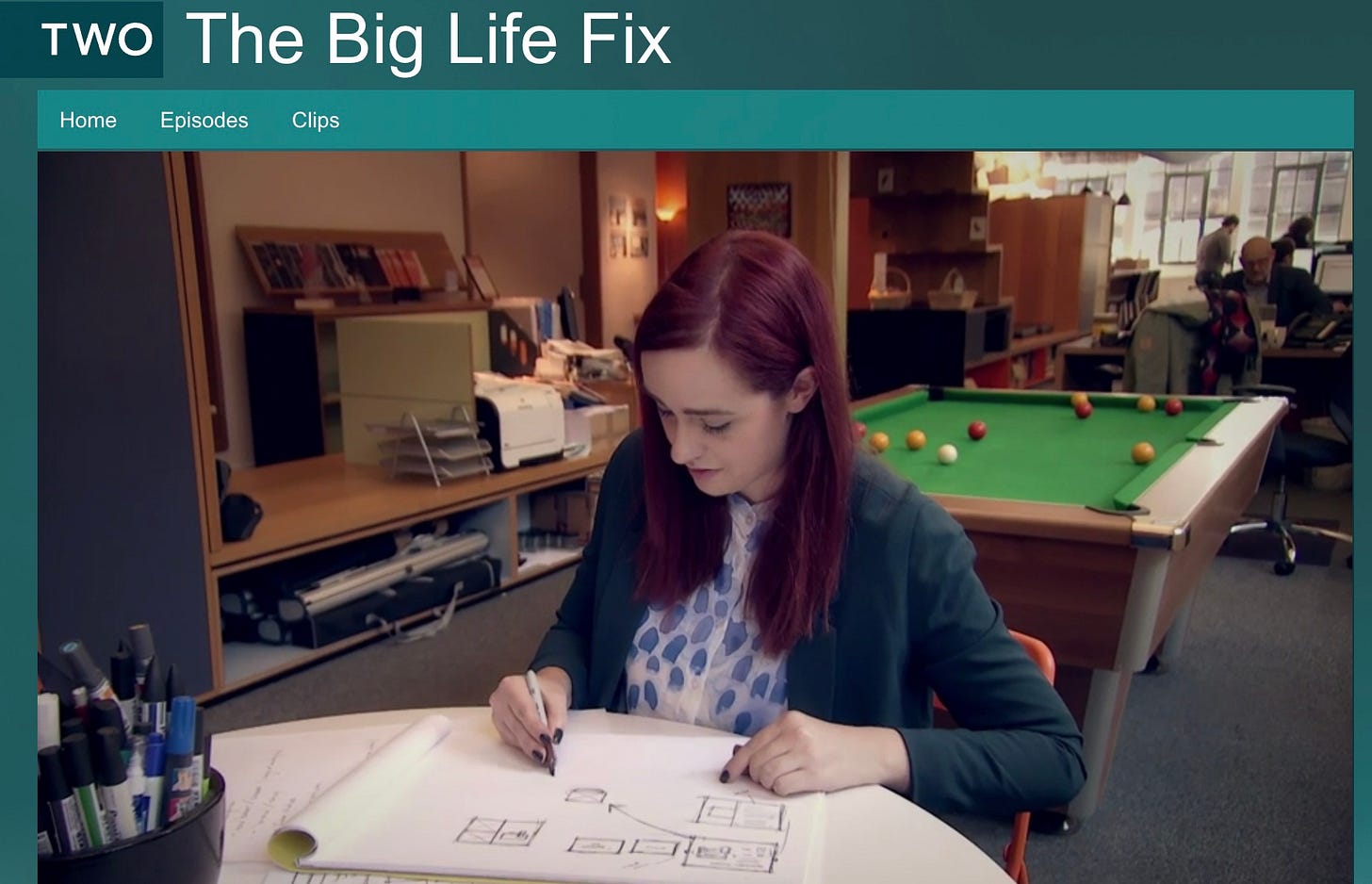Emma Lawton - battling loneliness with events
Parkinson's doesn't stop you from being an entrepreneur
If the last couple of years have taught us anything it is just how valuable human contact is - and what a price we can pay in terms of our mental health when we are deprived of it. I’ve been speaking to an inspirational entrepreneur with a mission to battle loneliness by making it easy to run events. Emma Lawton and I first met because we have a common interest - Parkinson’s.
(Subscribers will also be able to listen to my whole conversation with Emma Lawton)
But we’ll come to that later - first I wanted to know more about More Human, the business she and her cofounders started during the pandemic. “We're basically building a software platform that helps anyone create really great events,” she explains.
People put an awful lot of blood, sweat and tears into organising a book club or a yoga class or a running group “and then nobody turns up.” More Human has a solution: “We give them all the tools they need to create a really brilliant listing that no one will be able to resist because it sounds so much fun.”
The idea was born when Emma met Mel Nurse and Duncan Lindsey on a business startup programme called Zinc. and found they had something in common. “We had all experienced loneliness at various points of our lives. And it was something we definitely really wanted to tackle.” Loneliness, she says, can affect your finances, your confidence and your health. “We thought it felt quite an impactful thing to try and work on because it seemed to underpin a lot of the other problems people have.”
They decided the answer was to make it easier for people with common interests to get together for social activities but the key was taking the stress out of being the person who organised the event. They formed their business in April last year and are now testing a prototype with a number of organisations including Mental Health Swims, which does what it says on the tin, and Eden Project Communities which is helping organise the Jubilee Lunch, the biggest ever street party, in June.
Of course the irony is that most of the work of setting up More Human, and most of Emma’s interactions with her co-founders, have happened online rather than in the real world. That’s partly due to pandemic restrictions but also because Emma Lawton has a condition which limits her mobility.
At 29, when she was working as a creative director in a design agency, she was diagnosed with Parkinson’s Disease. It is a condition that more commonly affects older people like me - I was diagnosed at 60 - but around 2 percent of those living with it are told they have what is called Young Onset Parkinson’s before they are 40.
“It was a shock,” she remembers. “But I think I was very lucky that I had very good people around me at the time, and I had good friends who didn't let me wallow in it.” But her work as a designer became much harder because her tremor made it virtually impossible for her to draw.
A big breakthrough came in 2016 when she was asked to take part in a BBC documentary The Big Life Fix, where a Microsoft engineer designed a watch that would combat the tremor and allow her to write legibly. “What it did for me was actually made me realise that my career was whatever I wanted it to be - with technology, I could do whatever I wanted. "
But about a year after the documentary she developed her most debilitating symptom, a weakness in her neck muscles that makes it hard for her to hold her head up. It is something that has left her doctors bemused: “They don't think it's anything to do with Parkinson's, but they don't know why it's happened. ”
That made it harder for her to get about but no less determined to tick off the items on her bucket list, which included starting her own company. “I want to take every opportunity because I think every day things are going to be harder, maybe just a little bit,” Emma explains. “And I see that as a positive, because actually - do stuff now, don't sit waiting for someone to give you something better, or for it to be easier. It's never going to be easier.”
What did become easier when the pandemic lockdowns came along was not having to explain why she could not make it to “real world” pitch meetings: “I don't know if I'd have been able to be a CEO or a co-founder or an entrepreneur if we were having to go out and do pitches all the time and things like that.”
It is 10 years now since Emma Lawton learned she had Parkinson’s Disease, a decade in which she’s seen her health decline but has achieved much and discovered a vibrant supportive community. Three years into my own Parkinson’s journey I find her an inspiration, a role model in how to handle adversity with grace and humour.
At the end of our conversation she told me I now had seven years to found my own startup - and get a shock of pink hair like hers. Now there’s a challenge….
Subscribers


